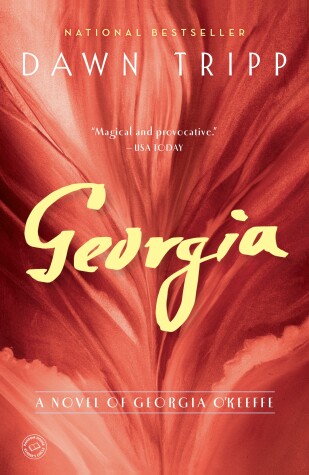
Quirky Cat
Written on Jun 30, 2017
I went into this book all excited and hopeful, despite my concerns. Unfortunately I felt that ultimately this was not the novel for me, as I would have liked to read more about Georgia O’Keeffe and her artwork and time spent traveling. In particular I would have loved to read more about her time in New Mexico painting landscapes. I would have also loved more focus on the method and thoughts behind the artwork itself.
Georgia: A Novel seemed to focus more on O’Keeffe’s relationship with Alfred Stieglitz as opposed to her relationship to her artwork. I’ll admit I was a little put off by this fact, and wish the focus had been different. I think what really kept me from enjoying the book was the amount of attention Stieglitz received – it made him appear that every action, every move, every painting, was done with Stieglitz in mind. Some of that may be true, but I was always of the impression that Georgia O’Keeffe was a strong and independent woman, so I found everything to be jarring in comparison. I realize that these two states of being are not mutually exclusive; my point is that I don’t believe O’Keefe would have allowed herself to think of a man before her painting, let alone allowed him to interfere in it.
A few things in particular bothered me about these implications. One is that in the book, O’Keeffe is upset about the sexualized reviews she’s received. She perceives them as a connection to the photographs Stieglitz took of her. It is just my interpretation, but I had always assumed this critique came from her art style, not her background or past (but then again, I wasn’t there, so maybe this wasn’t the case). I’ve heard her artwork called sexual before (particularly when commenting on her flower abstracts), but never because of any photographs of her.
The other part is that the novel sped up and glossed over many events after Stieglitz’s death, yes I understand that their romance was the focus of this book, but there was so much more to O’Keeffe than that, and she didn’t simply stop living or painting after he passed away.
I would like to give credit to the research done for this novel (there are so many little factual details sprinkled throughout, adding to the realism), and the absolutely wonderful writing style used. I think that had this not been based on a real person (one that I’ve idolized since I was a child) I would have greatly enjoyed it.
For more reviews, check out Quirky Cat's Fat Stacks
